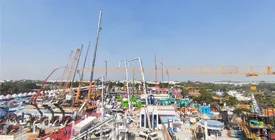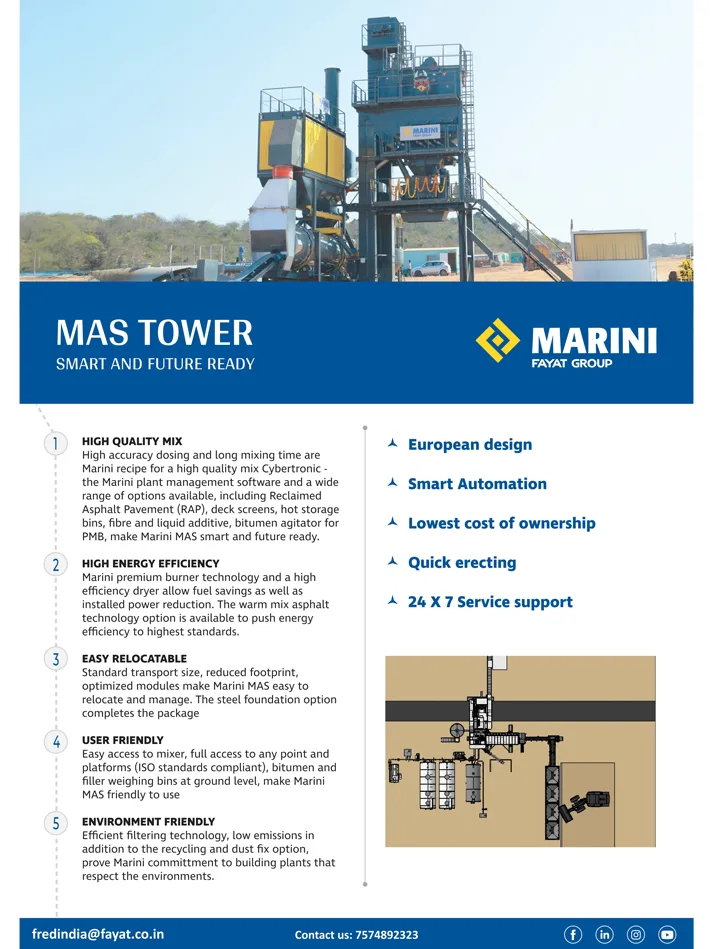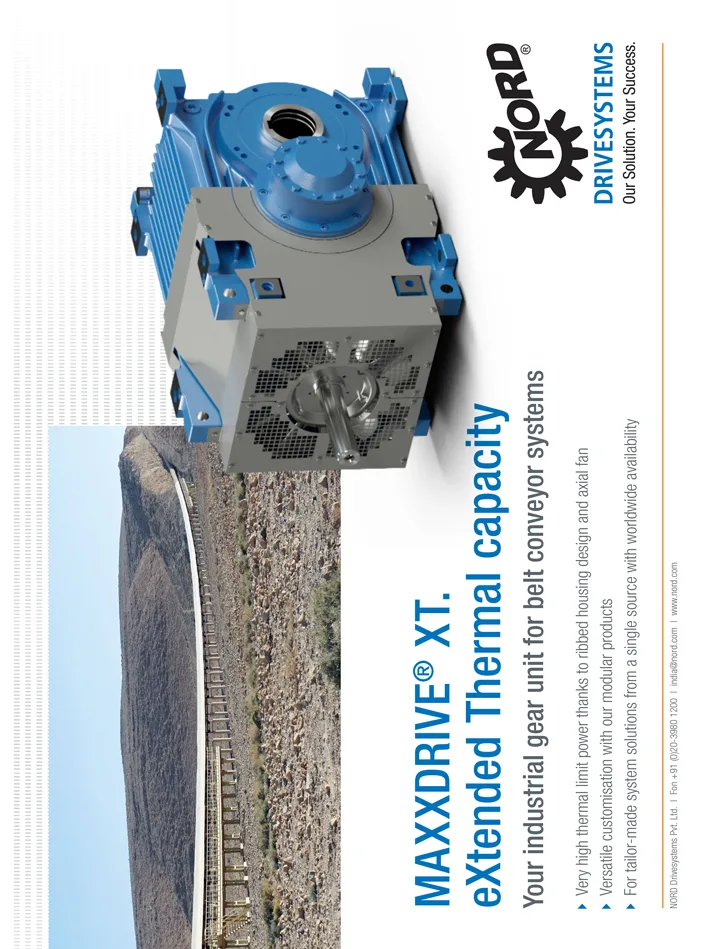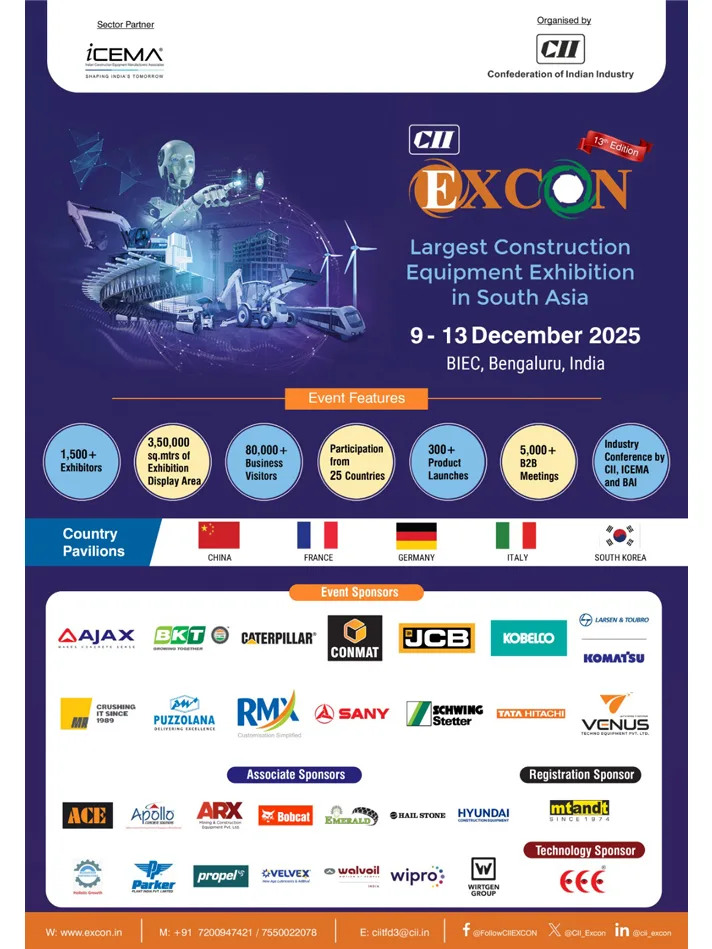PM Modi Launched Rs.8,000 Crore Projects in Gujarat and Inaugurate Ahmedabad Metro Phase-II
Prime Minister Narendra Modi unveiled a series of significant projects, including laying the foundation stones for developments worth Rs.8,000 crore and inaugurating the Phase-II extension of the Ahmedabad Metro. The new metro phase will connect GIFT City and will feature the country’s first Vande Metro service between Bhuj and Ahmedabad. PM Modi engaged with beneficiaries of the PM Surya Ghar Muft Bijli Yojana in Gandhinagar in the morning. Later, he inaugurated the 4th Global Renewable Energy Investor’s Meet and Expo (RE-INVEST) at Mahatma Mandir, a major event aimed at showcasing India’s advancements in renewable energy.
PM Modi launched the Ahmedabad Metro Rail Project and took a ride from Section 1 Metro Station to GIFT City Metro Station. This phase of the metro project is set to enhance mass transportation connectivity between GIFT City and Gandhinagar.
The Prime Minister inaugurated and laid the foundation stones for various development projects totaling over Rs.8,000 crore. This includes flagging off India’s first Vande Metro from Bhuj to Ahmedabad and several Vande Bharat trains on routes such as Nagpur to Secunderabad and Kolhapur to Pune. Additional projects include the quadrupling of railway lines between Samakhiali and Gandhidham, the development of major roads in Ahmedabad, and the construction of new flyover bridges.
PM Modi also inaugurated a 30 MW solar system, a 35 MW BESS Solar PV Project at Kutch Lignite Thermal Power Station, and 220 kV substations at Morbi and Rajkot. He also launched the Single Window IT System (SWITS) of the International Financial Services Centres Authority to streamline financial services. Furthermore, the Prime Minister approved more than 30,000 houses under the Pradhan Mantri Awas Yojana-Gramin, released the first installment for these homes, and begin construction under the PMAY Scheme. He also handed over completed houses to beneficiaries under both the Urban and Rural segments of the PMAY.
NITI Aayog Recommends Rs.14,000 Crore Investment in Bus and Water Transport to Enhance Last-Mile Connectivity in Mumbai Region
According to a recent NITI Aayog report, 5-10% of the estimated $17 billion allocated for Metro Rail transportation projects in the Mumbai Metropolitan Region (MMR), equating to Rs.7,000-Rs.14,000 crore, should be invested in enhancing non-Metro rail public transportation such as buses and water transport. This investment aims to bolster last-mile connectivity for daily Metro commuters.
Released recently, the report emphasizes integrating bus services with coastal water transport to improve overall connectivity. The NITI Aayog report was unveiled in the presence of Klaus Schwab, founder of the World Economic Forum, and outlines strategies to elevate the MMR into a global economic hub.
The report highlights that while bus and water transport services are often deemed “loss-making” and face pressure to reduce operations, a well-coordinated network of buses and ferries can significantly alleviate city congestion, lower air pollution, and address last-mile connectivity issues. It advocates for investments and potential cross-subsidies to sustain and expand these services.
Moreover, the report recommends that buses and water transport vehicles be designed as sustainable electric vehicles to meet MMR’s sustainability goals and offer lower operational costs compared to diesel buses. It calls for targeted investments in electric buses and coastal ferry services, suggesting that MMRDA (Mumbai Metropolitan Region Development Authority) should oversee these operations with private sector participation and necessary viability gap funding. Sources within BEST (Brihanmumbai Electric Supply and Transport) indicate that the management might seek government and MMRDA support for procuring new AC electric buses on a wet lease basis, which could address last-mile connectivity issues near Metro stations on Lines 1, 2A, and 7.
Currently, commuters report difficulties in finding feeder services such as buses or autos to reach their final destinations after traveling on Metro trains. Activists advocate for establishing dedicated feeder AC bus services at Metro stations, similar to the SATIS (Station Area Traffic Improvement Scheme) at railway stations like Thane, where all transport modes are readily accessible.
Trial Runs Between Sahibabad and New Ashok Nagar Set to Begin in November
The National Capital Region Transport Corporation (NCRTC) announced recently the trial runs for the 12-kilometre section from Sahibabad to New Ashok Nagar in Delhi are expected to commence in November.
The New Ashok Nagar Namo Bharat station is nearing completion, with final stages of construction underway. Once operational, this segment will facilitate seamless travel between New Ashok Nagar and Meerut South RRTS stations in approximately 35-40 minutes, according to the NCRTC statement.
The Delhi portion of the NCRTC corridor includes a nine-kilometre elevated viaduct and a five-kilometre underground stretch. The elevated viaduct is complete, and work is progressing on track laying and overhead electrification (OHE) installations. The 14-kilometre stretch encompasses Sarai Kale Khan, New Ashok Nagar, and Anand Vihar stations, all of which are close to completion.
The New Ashok Nagar station, spanning 215 metres in length and 30 metres in width, has its concourse and platform levels completed, with roof work ongoing. Track-laying is nearly finished up to New Ashok Nagar, and OHE and signalling work is in progress.
A 90-metre-long, 6-metre-wide foot over bridge (FOB) is being constructed to connect the New Ashok Nagar Namo Bharat station to the metro station. This FOB will link the concourse level of the metro station to the concourse of the NCRTC station, allowing passengers to transfer smoothly between transport modes without leaving the station premises. The station will feature four escalators for easy movement between the platform and concourse levels, and platform screen doors (PSDs) are being installed for added safety. Two additional FOBs are being constructed to improve connectivity and accessibility. Parking facilities at the station will accommodate over 550 two-wheelers and four-wheelers, enhancing convenience for those arriving by personal vehicles. Dedicated pick-up and drop-off points will be available for vehicles, and an off-road service line will facilitate cab and auto services. Currently, Namo Bharat train services operate on a 42-kilometre stretch from Sahibabad to Meerut South. The complete 82-kilometre corridor is expected to be finished by June 2025, enabling travel between Delhi and Meerut in under an hour.
Bengaluru Suburban Railway Project’s Corridors 2 and 4 to be Completed by 2026: MoS Somanna
Union Minister V. Somanna announced recently that two key corridors of the Bengaluru Suburban Railway Project-Chikkabanavara-Baiyyappanahalli (Corridor-2, 25 km) and Heilalagi-Rajanukunte (Corridor-4, 46.88 km)-are scheduled for completion by December 2026. The announcement came after a joint press conference with Karnataka Infrastructure Development Minister M.B. Patil, following a progress review meeting with senior officials of K-Ride, the Rail Infrastructure Development Company (Karnataka) Ltd. During the meeting, officials requested an additional three months to resolve land acquisition issues. Both ministers emphasized that no further delays would be tolerated once this extension is granted. To meet the 2026 deadline, the ministers stressed that railway carriages must be supplied at least six months prior to the project’s completion to ensure the timely launch of the corridors for public use. Minister Patil also proposed extending the suburban railway network to neighboring cities and towns. In response, Somanna committed to holding discussions with relevant officials to explore these possibilities. The feasibility of extending Corridor-1 directly to Kolar from Devanahalli, bypassing Chikkaballapura, was also considered.
The meeting further discussed integrating the suburban rail network with the proposed 281 km peripheral railway project, which is estimated to cost Rs.21,000 crore. Key officials, including South Western Railway General Manager Aravinda Srivastava, Namma Metro Managing Director Maheshwar Rao, and BBMP Chief Commissioner Tushar Girinath, were in attendance.
Earlier in the day, Somanna visited the Rail Wheel Factory in Yelahanka to review the plant’s operations and upcoming projects.
Rewa Airport Receives DGCA Approval, Set to Become Madhya Pradesh’s Sixth Operational Airport
The Directorate General of Civil Aviation (DGCA) has granted an operating licence to Rewa Airport in Madhya Pradesh, marking a major step towards enhancing regional connectivity and economic growth in the state’s Vindhya region. This will make Rewa the sixth operational airport in Madhya Pradesh, joining Bhopal, Indore, Jabalpur, Gwalior, and Khajuraho. Chief Minister Mohan Yadav, in a statement, highlighted the significance of the airport for regional development, stating, “The Rewa Airport will boost economic activity and expand connectivity, contributing to the state’s growth under the vision of a ‘Developed India-Developed Madhya Pradesh’.” The new airport will handle both passenger and cargo flights, aiming to improve access to cultural and historical landmarks, while also promoting trade, tourism, and employment in the region. Deputy Chief Minister Rajendra Shukla, a native of the Vindhya region, expressed excitement about the upcoming airport operations, noting that it will usher in a new era of economic, social, and cultural development. He extended his gratitude to Prime Minister Narendra Modi, Union Civil Aviation Minister K. Ram Mohan Naidu, and the chief minister for making this project a reality.
Rewa Airport’s operations are expected to play a crucial role in the state’s ongoing development efforts, enhancing connectivity and unlocking new opportunities for the Vindhya region.
JSW Infrastructure Plans Rs.2,359 Crore Investment for Port Expansion
JSW Infrastructure Limited, India’s second-largest private port operator, has unveiled a Rs.2,359 crore capital expenditure plan to expand capacity at its Jaigarh and Dharamtar ports. The ambitious project aims to enhance the ports’ combined capacity by 36 million tonnes per annum (MTPA)-21 MTPA at Dharamtar and 15 MTPA at Jaigarh.
Following the expansion, Jaigarh Port’s capacity will increase from 55 MTPA to 70 MTPA, while Dharamtar Port’s capacity will rise from 34 MTPA to 55 MTPA. This initiative is part of JSW Infrastructure’s broader goal to achieve a total capacity of 400 MTPA by 2030, up from the current 170 MTPA.
The expansion project, expected to be completed by March 2027, will include the development of new berths and infrastructure enhancements such as railway siding at Jaigarh Port. The upgrade is intended to support the anticipated increase in cargo volume from a major customer’s proposed 5 MTPA steel-making facility in Dolvi, Maharashtra. JSW Infrastructure estimates that the expansion will facilitate an additional cargo handling volume of around 27 MTPA across the two ports.
NHEV Launches 3rd Tech Trial in Tamil Nadu to Transform Highways into E-Highways
The National Highways for Electric Vehicles (NHEV), an initiative by the Government of India, has launched its third tech trial to convert five highways in Tamil Nadu into electric highways. This pilot follows successful trials in Delhi, Jaipur, and Agra, which have provided valuable insights into the deployment and management of electric and zero-emission vehicles.
The Tamil Nadu trial will focus on five key routes: Trichy to Chennai, Trichy to Madurai, Coimbatore to Ulundurpet, Krishnagiri to Madurai, and Madurai to Kanyakumari. For the first time, this trial will include not only electric SUVs and buses but also electric, hydrogen, and zero-emission freight vehicles.
The collected data will be used to determine optimal locations and frequency for charging stations, evaluate associated costs, and assess the investment needed for the highway upgrades.
“This trial marks a shift in focus to include freight and logistics components,” said Abhijit Sinha, Programme Director at NHEV. “We’re integrating logistical aspects to evaluate the deployment of electric, hydrogen, and zero-emission trucks on a 5,500 km e-highway currently under upgrade by NHEV.”
Despite lower operating costs compared to diesel, hydrogen and electric trucks are not yet widely available for commercial use. This trial aims to gather real-time data to support their initial deployment, following earlier e-mobility pilot projects for electric buses and SUVs. Tamil Nadu was chosen for this project due to its significant role in India’s logistics sector and its potential to become a one-trillion-dollar economy. The state is a hub for automobiles, logistics, and trucking in southern India, and also hosts numerous industries and manufacturing units.
The initiative aims to reduce logistics costs in India from 14% to 9%. As trucking is a major contributor to these expenses, Tamil Nadu’s advancements could serve as a model for other states. “Our goal is to decarbonize the trucking industry and transition to zero-emission trucking,” Sinha added.
NCRTC Unveils Meerut Metro at RRTS Depot in Duhai, Ghaziabad
The National Capital Region Transport Corporation (NCRTC) officially unveiled the ‘Meerut Metro’ at the RRTS Depot in Duhai, Ghaziabad, recently. The new metro system features three-car trainsets with ergonomic seating arrangements that include both 2×2 transverse and longitudinal seating, providing comfortable accommodations for over 700 passengers, including 173 seats.
The Meerut Metro emphasizes safety and efficiency, with platform screen doors (PSDs) installed at all stations to synchronize with metro operations and manage crowds effectively. Selective door openings via push buttons are designed to reduce energy consumption.
Shalabh Goel, Managing Director, NCRTC highlighted the transformative impact of the Meerut Metro on the city’s transportation infrastructure. He noted that the metro will significantly reduce travel times, ease traffic congestion, and spur economic growth by providing a modern, reliable transit system.
In line with the Make in India initiative, all trainsets for the Meerut Metro are being manufactured domestically in Savli, Gujarat. To date, five trainsets have been delivered to NCRTC. These trainsets boast a design speed of 135 kmph and an operational speed of 120 kmph, featuring a sleek, lightweight design with stainless steel construction and energy-efficient regenerative braking systems. They also support automatic train protection (ATP) and automatic train operations (ATO).
Safety features include a passenger emergency communication system, fire extinguishers, alarms, and talk-back systems. The metro trains will offer reserved seating for female passengers and senior citizens, and all stations and trains are designed to be universally accessible, with facilities for medical stretchers and wheelchairs.
The Meerut Metro will operate along the existing RRTS infrastructure from Meerut South to Modipuram. At four key stations—Meerut South, Shatabdi Nagar, Begumpul, and Modipuram—commuters can transfer to Namo Bharat train services, optimizing infrastructure use and reducing construction costs.
Spanning 23 km with 13 stations, the Meerut Metro includes 18 km of elevated tracks and 5 km of underground sections. The metro is expected to cover this distance in approximately 30 minutes. Construction is advancing rapidly, with underground tunnel work completed and finishing touches underway at underground stations. Track laying is in progress on completed tunnels and viaducts, with viaduct construction nearly finished up to Modipuram station.
Goel expressed confidence in meeting the project timeline and thanked the governments of India and Uttar Pradesh for their ongoing support, which has fostered a development-focused environment for the project.
CM Announces Polavaram Phase 1 Completion by 2027
Chief Minister N. Chandrababu Naidu has announced that Phase 1 of the Polavaram project is set to be completed by the end of 2027. In a statement, Naidu expressed gratitude to Prime Minister Narendra Modi, Union Finance Minister Nirmala Sitharaman, and Jal Shakti Minister C.R. Patil for allocating Rs.12,157 crore for the project’s first phase. He described the Union Cabinet’s approval of funds for Polavaram and two industrial nodes as a historic milestone for Andhra Pradesh, instilling renewed confidence in the state.
Naidu emphasized the importance of securing approvals for Phase 2 and addressing any concerns that may arise. He criticized the previous YSRC government for halting the project for over 15 months, attributing significant setbacks to poor decision-making.
Naidu recalled the project’s origins, stating that Polavaram was conceived by Sir Arthur Cotton but faced numerous challenges over the years. He noted that after the state’s bifurcation and the project’s designation as a national project, the TDP government made significant progress, completing 72% of the work. Naidu personally visited the dam site 28 times and conducted 82 virtual reviews to ensure progress.
The project has achieved key milestones, including the completion of the diaphragm wall in a record 414 days, installation of spillway gates, and construction of the coffer dam. The state government has already invested Rs.11,762 crore in the project and Rs.4,114 crore in rehabilitation efforts, without waiting for federal funds.
Naidu criticized the 2019 government change, stating that the new administration’s actions, such as terminating the project’s contractor, led to significant delays. He argued that if gaps in the coffer dam had been addressed in 2019, the project could have been completed by 2021.
In addition to discussing Polavaram, Naidu praised the Union government’s allocation of three industrial corridors to Andhra Pradesh. The Kopparthi Industrial Node will be developed over 2,596 acres with a Rs.2,137 crore investment, creating 54,000 jobs. The Kurnool Industrial Node will span 2,621 acres with a Rs.2,781 crore investment, attracting Rs.12,000 crore in investments and generating 45,000 jobs. The Krishnapatnam Node will receive a Rs.1,800 crore investment, and tenders for the Nakkapalli Pharma Hub are underway.
Bihar CM Nitish Kumar Reviews Expansion Work at Patna Airport
Bihar Chief Minister Nitish Kumar visited Jayaprakash Narayan International Airport in Patna recently to review the ongoing expansion project, which includes the construction of a new terminal. Kumar urged officials to expedite the completion of the work and chaired a review meeting to assess the project’s progress.
According to a statement from the Chief Minister’s Office, the expansion, estimated to cost Rs.1,400 crore, was presented by M. Suresh, Chairman of the Airports Authority of India (AAI). Suresh assured that the new terminal would be completed within the next five months, increasing the airport’s capacity from 30 lakh to one crore passengers annually. The new terminal will add six parking stands, raising the total from five to eleven.
Kumar emphasized the importance of enhancing airport facilities and connectivity. “Improve water drainage arrangements and enhance connectivity to ensure passengers can reach the airport quickly,” he directed. He also pledged state support for any additional needs during the construction phase.
In addition to the Patna airport expansion, the state government is also working on expanding airports in Gaya and Darbhanga and initiating new airports in Purnea, Raxaul, Rajgir, and Bhagalpur.
Kochi Metro Rail Begins Phase II Construction
Kochi Metro Rail Limited (KMRL) commenced construction on the viaduct and CEZ Metro station for Phase II of the Pink Line. Industry Minister P Rajeeve inaugurated the project at the site of the proposed CEZ Metro station, with Hibi Eden MP, Uma Thomas MLA, and other dignitaries in attendance.
Following the inauguration, Afcons Infrastructure Ltd, the contractor for the Rs.1,957.05 crore Pink Line project, will begin piling work for the viaduct. Afcons has been awarded the Rs.1,141.32 crore contract to build the 11.2 km viaduct, with a completion timeline of 20 months. If the construction is finished on schedule, KMRL is expected to earn the distinction of the fastest metro construction agency in India. The overall Phase II project is anticipated to be completed within two years, according to a KMRL press release.
The Asian Infrastructure Investment Bank (AIIB) has approved Rs.914 crore in financial assistance for the Phase II project, with KMRL MD Loknath Behera stating that a contract with the AIIB will be signed in October.
Preliminary work for the project has already included over five test pilings along the proposed route from JLN Stadium to Infopark, soil tests, and topographical surveys. The new stations planned include Palarivattom Junction, Palarivattom Bypass, Chembumukku, Vazhakkala, Padamughal, Kakkanad Junction, Cochin SEZ, Chittethukara, KINFRA, and Infopark.
KMRL aims to complete system and signaling works within four months following the viaduct construction. Additionally, the KMRL is preparing to discuss alternative routes to mitigate traffic congestion in the city-to-Kakkanad corridor during the construction period.
Nine Infrastructure Projects Worth Rs.12,500 Crore to Alleviate Thane Traffic Congestion
The Mumbai Metropolitan Region Development Authority (MMRDA) has awarded contracts totaling Rs.12,546 crore for nine major road infrastructure projects aimed at alleviating traffic congestion in Thane and its neighboring areas.
The projects include:
- Navayuga Engineering will undertake two major projects: a 13 km Freeway extension from Mankhurd to Anand Nagar, Thane, costing Rs.2,682 crore, and a 13.5 km coastal road from Balkum to Gaimukh, valued at Rs.2,727 crore.
- J Kumar Infraprojects will construct an 8.2 km elevated road from Anand Nagar to Saket for Rs.1,847.7 crore.
- Afcons Infrastructure is set to build a 4 km creek bridge and a road from Kasarwadavli to Kharbao for Rs.1,525 crore, along with a 6.2 km elevated road from NH-4 to Katai Naka, costing Rs.1,981 crore.
- Ashoka Buildcon will be responsible for constructing two creek bridges—one at Gaimukh-Payegaon and another at Kolshet-Kalher—for Rs.1,265 crore, as well as an elevated road from Kalyan-Murbad to Badlapur for Rs.451 crore.
- IKBA Infrastructure will develop a foot overbridge at Teen Hath Naka for Metro 4 and 4A at a cost of Rs.68 crore.
These projects are expected to significantly improve traffic flow and reduce congestion in the Thane region.
Delhi’s Rithala-Narela Metro Corridor to Extend into Haryana
Delhi Transport Minister Kailash Gahlot announced recently that the Rithala-Narela metro corridor will be extended to Kundli-Nathupur in Haryana. The Delhi government has approved the extension in principle and will soon submit the proposal to the Centre to move forward to the tendering phase.
The extended corridor will span a total of 23.73 kilometers, with 2.72 kilometers in Haryana. It will include 19 stations between Rithala and Narela, plus two additional stations in Haryana. The project is expected to cost approximately Rs.6,230.99 crore and be completed within four years.
Gahlot highlighted that the extension will link rural areas along the Delhi-Haryana border to the city, providing a crucial alternative to the currently available bus services. This will enable commuters from these regions to reach central Delhi in about an hour and a half.
“This extension will benefit not only the residents of Kundli and Nathupur but also people from surrounding villages,” Gahlot said.
The Rithala-Narela-Nathupur corridor is part of Delhi Metro’s Phase-4 expansion, which includes six other corridors: Mukundpur (Majlis Park)-Maujpur, Aerocity-Tughlakabad, Janakpuri West-RK Ashram, Lajpat Nagar-Saket G Block, Inderlok-Indraprastha, and Rithala-Narela-Nathupur.
Gahlot also noted that under Chief Minister Arvind Kejriwal’s leadership, the expansion of the metro network aims to reduce travel time, alleviate road congestion, and promote public transport usage, contributing to efforts to combat pollution.
Land Acquisition for New Yerpedu-Pudi Railway Line to Start Soon, Says Tirupati MP
Tirupati MP Dr. M. Gurumoorthy announced that the land acquisition for the new railway line connecting Yerpedu and Pudi stations will begin soon. This development is part of broader efforts to improve rail infrastructure in the region.
Dr. Gurumoorthy reviewed modernization efforts at Tirupati railway station, which serves approximately six crore passengers annually. The Union Government plans to enhance the station’s amenities to international standards with a substantial investment of Rs.300 crore.
To address traffic bottlenecks between Tirupati and Renigunta, the construction of three under-bridges near level crossings at Carriage Repair Shop, Cotton Mill, and Chintalachenu is underway. Dr. Gurumoorthy noted that cable shifting is in progress and excavation for these under-bridges will begin shortly. He emphasized the need for measures to prevent water stagnation during the rainy season.
Additionally, Dr. Gurumoorthy reviewed progress at Renigunta Junction, which is set to receive Rs.200 crore for modernization. A new railway bridge is proposed at the Santha Gate level crossing. He also highlighted the long-standing issue of water stagnation in a 1200-meter drain adjacent to the railway track, stressing the need for desilting.
Furthermore, a third railway line between Tirupati and Gudur has been sanctioned, which is expected to alleviate congestion for long-distance trains.












